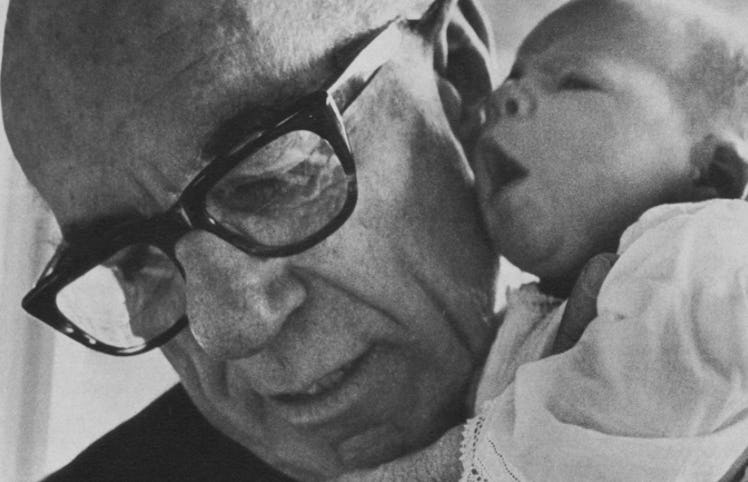50 Years Ago the Federal Government Came for Dr. Benjamin Spock
Half a century later and half this stuff still works!

On this day 50 years ago renowned pediatrician Dr. Benjamin Spock was indicted by the federal government of the United States — not for anything related to his work as a doctor or expert on human development, but for encouraging young men to protest and resist the draft during the Vietnam War.
Spock is best known for jumpstarting the first national conversation surrounding attentive and affectionate parenting. While it’s very hard to imagine how radical some of his ideas were when he first became a public figure, at the time Spock’s suggestions that parents not constrain their affection for their children was considered by many to be eccentric as well as indulgent. Spock told parents that it was perfectly okay for them to kiss and hug their children whenever the urge struck them. And he made bank on these insights. Published in 1946, The Common Sense Book of Baby and Child Care sold by the truckload for decades. Though some of its teachings are out of whack with modern research, it’s importance in creating a culture of care cannot be overstated.(One prime example of outdated work is Spock’s assertion that babies should sleep on their stomachs. Medical research suggests that this habit increases the likelihood of SIDS.) Similarly, it would be difficult to overstate the significance of Spock’s public profile at the time of his arrest.
It was Spock’s radically different approach to parenting that helped make him a prime target of the Johnson administration. Spock was aligned, because of his love-first approach to parenting, with the hippy movement whether or not he wanted to be — and it didn’t help that he worked at Harvard. When he became a political agitator, he garnered headlines and fame precisely because he wasn’t a rock ‘n’ roll-playing longhair. He was a professor who declined to stand with an establishment he saw as deeply flawed. A man of principal, Spock did not back down in the face of government intimidation. In a sense, his run-in with the feds was a preview for later clashes between Fred Rogers and Congress.
History would prove Dr. Spock largely right about U.S. misadventures in Southeast Asia and largely, if not entirely, right about the role in parenting as well. If there is anything worth remembering from the episode it is surely the thing that Spock always preached: There’s no such thing as caring too much about the wellbeing of young people.